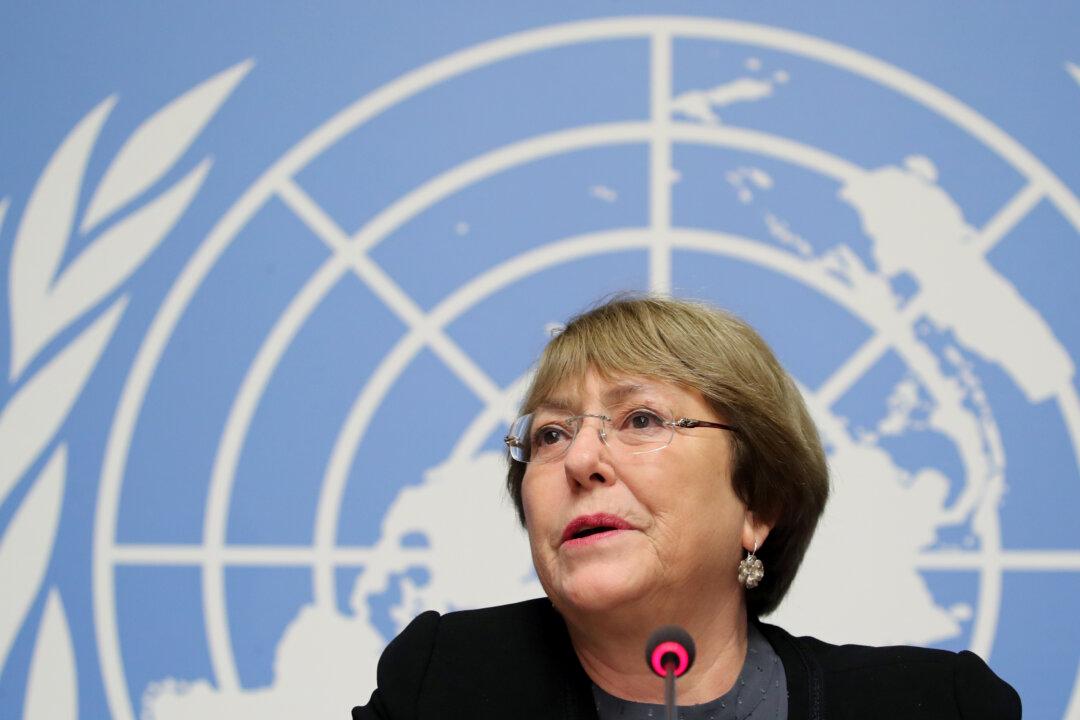GENEVA—United Nations High Commissioner for Human Rights Michelle Bachelet said on March 6 that she is seeking access to China to verify continuing reports of disappearances and arbitrary detentions, particularly of Muslims in the Xinjiang region.
China has faced growing international outcry for what it calls re-education and training centers in the remote western region: Activists say they are mass detention camps that hold more than 1 million ethnic Uyghurs and other Muslims.
“My Office seeks to engage on this issue with the Government for full access to carry out an independent assessment of the continuing reports pointing to wide patterns of enforced disappearances and arbitrary detentions, particularly in the Xinjiang Uyghur Autonomous Region,” Bachelet said.
It was her second appeal in six months at the U.N. Human Rights Council, where China’s delegation is expected to respond later this week.
China has previously said it would welcome U.N. officials if they avoided “interfering in domestic matters.”
‘Concentration Camps’
Activists have urged European and Muslim nations to take the lead at the rights forum in establishing a U.N. investigation into China’s detention and what they call its “forced indoctrination” of ethnic and religious minorities.“This brutal and surgical suppression of fundamental freedoms of Uyghurs and other ethnic minorities demands a heightened response,” Sarah Brooks of the International Service for Human Rights said at a panel event on March 6.
Dolkun Isa, president of the exiled World Uyghur Congress, said on March 6 that two million people are detained in “concentration camps” in Xinjiang, including 338 intellectuals.
U.S. diplomat Jason Mack said that U.N. reports paint “a disturbing picture of what is occurring in the Xinjiang region.”
China has made many aspects of religious practice and culture in Xinjiang criminal, “including punishments for teaching Muslim texts to children and bans on parents giving their children Uyghur names,” he said.
“Citizens can also be detained for having abnormal beards, wearing headscarves, refusing to watch state television ... abstaining from alcohol and tobacco, fasting during the holy month of Ramadan, attending mosques, practicing traditional funeral rituals, having family or friends abroad, traveling abroad oneself, owning camping equipment and asking others not to swear,” Mack said.





